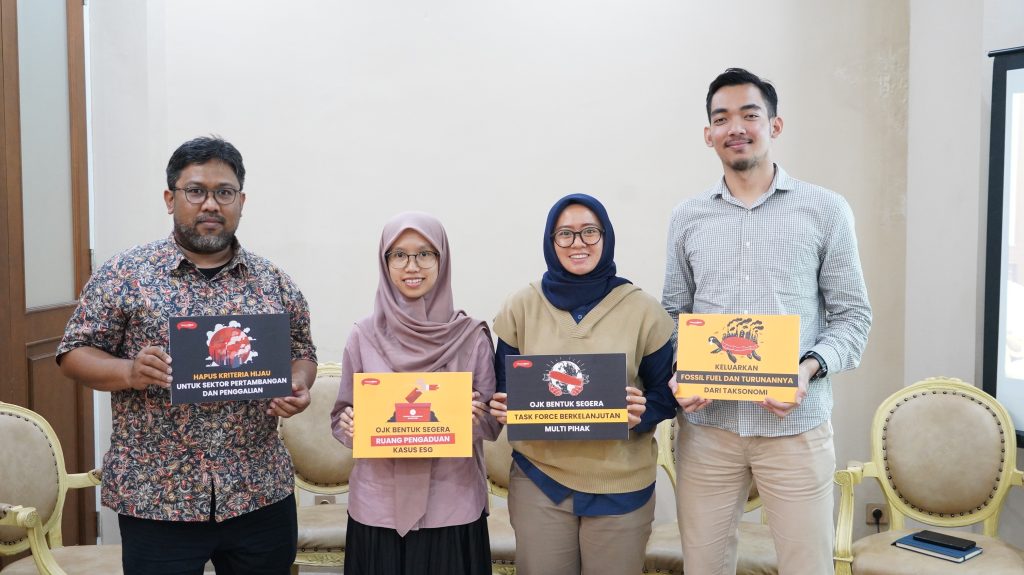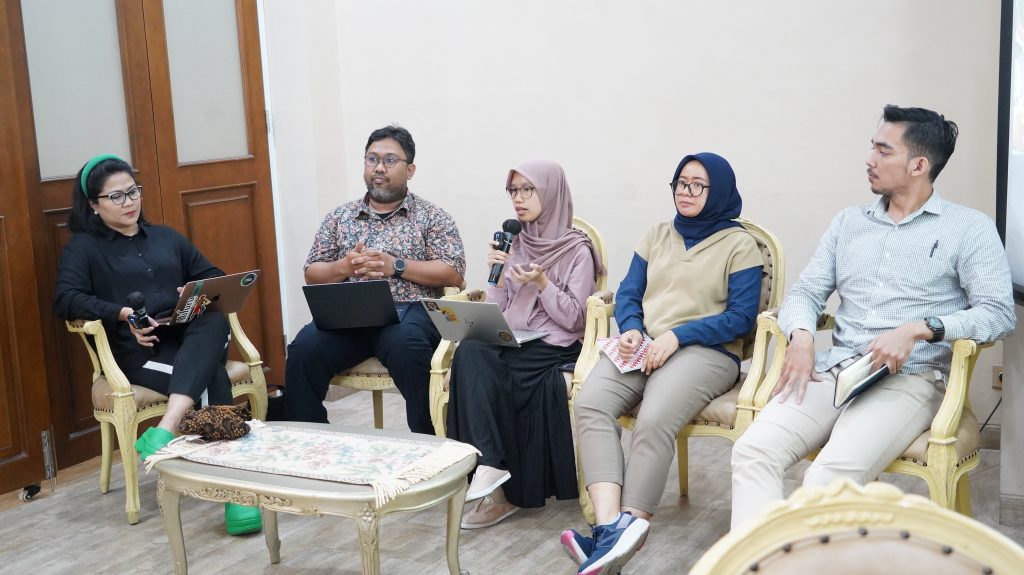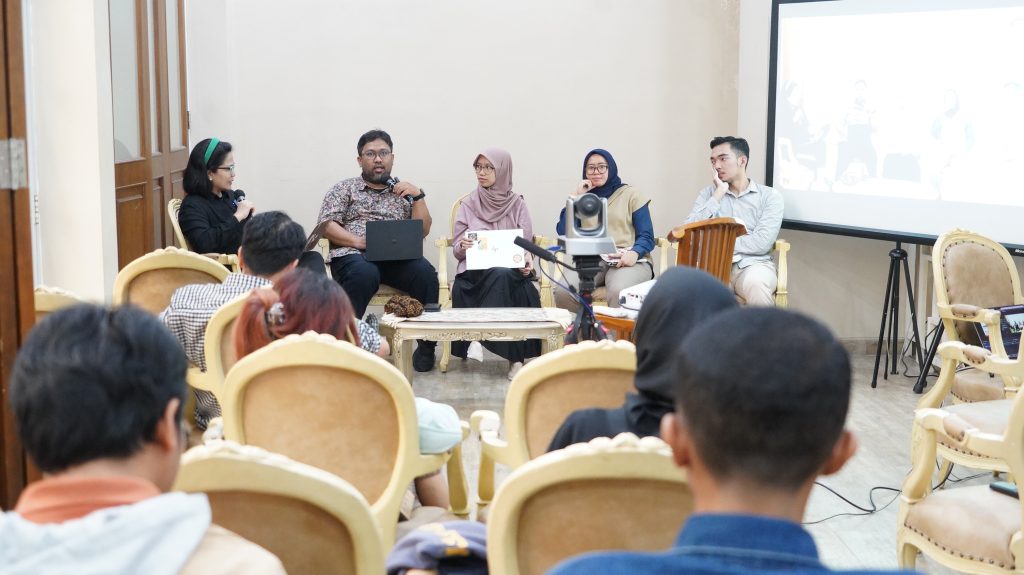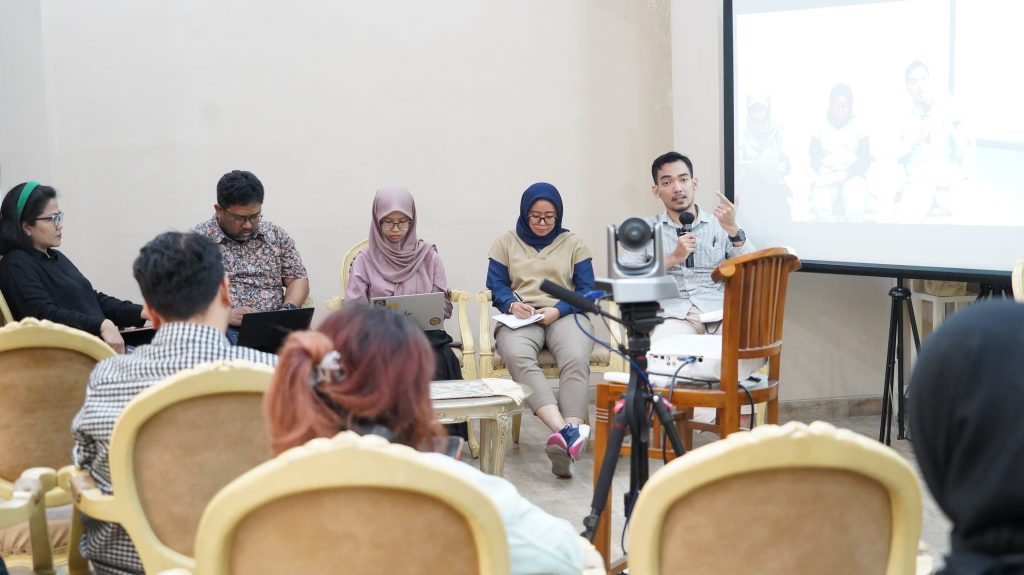The ResponsiBank Indonesia Coalition Assesses that the Indonesian Sustainable Taxonomy V.1 issued by the OJK Still Provides a Loophole for Fossil Energy Financing

Jakarta, The PRAKARSA - The Financial Services Authority (OJK) has carried out a series of public consultations to gather input from various parties regarding the preparation of the 1 Indonesian Sustainable Taxonomy (TBI) V.2023 document. We appreciate OJK's step in opening this public consultation as a joint effort in encouraging transparency and accountability practices. Behind all that, we hope that with public involvement, especially those of us from civil society organizations, OJK can accept constructive suggestions and criticism of the document.
As a coalition working in advocacy for the sustainable financial sector, ResponsiBank has created a study document on the draft TBI document. The coalition sees that the TBI document cannot be called an update of the Indonesian Green Taxonomy (THI). The Coalition assesses the importance of OJK to clarify the position/status of THI and TBI, the implementation of THI and TBI, as well as the extent to which each of these documents regulates financing in specified sectors. The TBI Draft includes the energy and mining sectors, showing OJK's efforts to quickly label the energy and mining sectors, pursuing climate funding for these sectors.
Dwi Rahayu Ningrum, Sustainable Development Officer, The Prakarsa expressed appreciation for the integration of social aspects in the sustainable taxonomy document. This shows OJK's commitment to paying attention and considering how companies respect human rights, employment and communities affected by investment activities. Dwi added "The integration of social aspects in the taxonomy is appropriate, but it also needs to be more detailed in regulating how companies carry out human rights due diligence, ensure gender justice and vulnerable communities, ensure a just transition, as well as transparent grievance mechanisms to accommodate these vulnerable groups." On Friday (8/12).
Linda Rosalina, Executive Director of TuK INDONESIA, conveyed that significant differences can be seen in the 3 categories of Green, Yellow and Red in THI then into 2 categories of Green and Transition in TBI. 'Transition' gives the impression that apart from the 'Green' category there is always an intention to improve, even though in reality this is not the case. "The Tuk Indonesia study shows that the implementation of aligning bank financing with the green taxonomy v1 is still mostly in the yellow and red categories. In this TBI, there is a danger of greenwashing when everything that is not yet 'Green' is declared as 'Transitional'. "The non-eligible criteria still need to be raised so that this TBI becomes credible," said Linda.
As a regional achievement, currently we have the ASEAN Taxonomy document, where Indonesia appears as a leader country in implementing THI, so it is better or even TBI should refer to this document. By providing an Indonesian context to make it happen, rather than being a completely different taxonomy of sustainable finance. Considering that Indonesia is the country with the highest threat of climate crisis in the Southeast Asia region, what is logical is that the TBI is stricter and more ambitious compared to the ASEAN Taxonomy.



Agung Budiono, Executive Director of the CERAH Indonesia Foundation, believes that TBI is still too loose in making energy sources from fossil fuels such as gas and also PLTU (captive) integrated with industry. "Even though it has been categorized as "Transitional" from the initial "Green" - the captive power plant is actually not a positive thing, because it shows the OJK's gray steps in preparing the TBI. "In the experience of many countries, PLTUs have been excluded from taxonomy documents," he said.
Apart from that, according to Agung, OJK needs to develop an early coal phase-out framework as part of a sustainable taxonomy. Even though it has been stated in its environmental objectives that PLTUs that will enter the early coal phase-out must have a just transition plan, the concept and implementation framework needs to be detailed. On the other hand, Pius Ginting, Coordinator of Ecological Action and People's Emancipation (AEER), highlighted the inclusion of several mining and quarrying activities, especially critical minerals, into the 'green' category. Some mining and quarrying activities that can be given the 'green' category are mining products that are considered to be raw materials for 'green' products or support transition efforts. "Mining and excavation activities for quartz sand and nickel, for example, can still be categorized as 'green' activities if they are proven capable of supplying raw materials for green products. "In fact, in general environmental mining activities have a negative impact on the surrounding environment, giving rise to contradictions in fulfilling the EO (Environmental Objectives) stated in the TBI," said Pius. Apart from that, he also touched on mining/quarrying activities which are still in the 'transition' category even though they have an intensive carbon emissions footprint, for example lignite mining. "Lignite mining activities should not even fall into the 'transition' category, lignite is the most carbon-intensive type or rank of coal – reaching 101,2 tCO2/TJ." he added.

